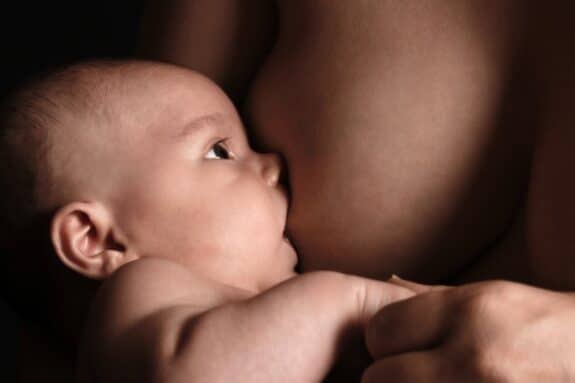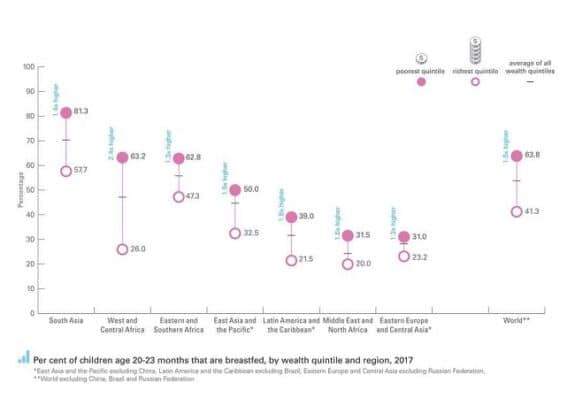Earlier this month Unicef revealed the number of babies missing out on breastfeeding remains high, particularly among the world’s richest countries. Worldwide, they say, approximately 7.6 million babies each year are not breastfed.
Despite many studies supporting the fact that breastmilk saves lives, protects babies and mothers against deadly diseases, and leads to better IQ and educational outcomes, an estimated 21 per cent of babies in high-income countries are never breastfed. In contrast, low-and-middle-income countries see a rate of just 4 per cent.
“Breastfeeding is the best gift a mother, rich or poor, can give her child, as well as herself,” said Shahida Azfar, UNICEF’s Deputy Executive Director a.i. “As we celebrate Mother’s Day, we must give the world’s mothers the support they need to breastfeed.”
In low- and-middle-income countries like Bhutan (99%), Madagascar (99%) and Peru (99%) than those born in Ireland (55%) the United States (74%) or Spain (77%) babies are more likely to be breastfed while more than one-third of the 2.6 million babies in the U.S. alone will never be breastfed.
Babies from the poorest families have rates for breastfeeding at 2 years – almost 1.5 times higher than those from the richest families. The researchers noticed the widest in West and Central Africa and in Latin America and the Caribbean, where babies from the poorest families have breastfeeding rates at 2 years that are nearly double those from wealthier families.
Percentage of children age two years in low- and -middle-income countries who are breastfed, by wealth quintile and region*
“We know that wealthy mothers in poor countries are less likely to breastfeed, but somewhat paradoxically, we’re seeing indications that in wealthy countries, it’s the poor who are the least likely,” said Shahida Azfar, UNICEF’s Deputy Executive Director a.i.” These breastfeeding gaps across income levels are a strong indication that countries, regardless of the level of wealth, are not informing and empowering every mother to breastfeed her baby.”
Countries like India and Vietnam have put in place strong policies to protect and promote breastfeeding while those like Turkmenistan have very high rates of mothers giving birth in baby-friendly hospitals. Almost all mothers in New Zealand and Sri Lanka give birth at a baby-friendly facility. Factors like cultural and political contexts, including support from fathers, families, employers and communities, play a decisive role as well.
Through its global campaign, Every Child ALIVE, which demands solutions on behalf of the world’s newborns, UNICEF urges governments, the private sector and civil society to:
- Increase funding and awareness to raise breastfeeding rates from birth through the age of two.
- Put in place strong legal measures to regulate the marketing of infant formula and other breastmilk substitutes as well as bottles and teats.
- Enact paid family leave and put in place workplace breastfeeding policies, including paid breastfeeding breaks.
- Implement the ten steps to successful breastfeeding in maternity facilities, and provide breastmilk for sick newborns.
- Ensure that mothers receive skilled breastfeeding counseling at health facilities and in the first week after delivery.
- Strengthen links between health facilities and communities, so that mothers are ensured of continued support for breastfeeding.
- Improve monitoring systems to track improvements in breastfeeding policies, programs, and practices.








